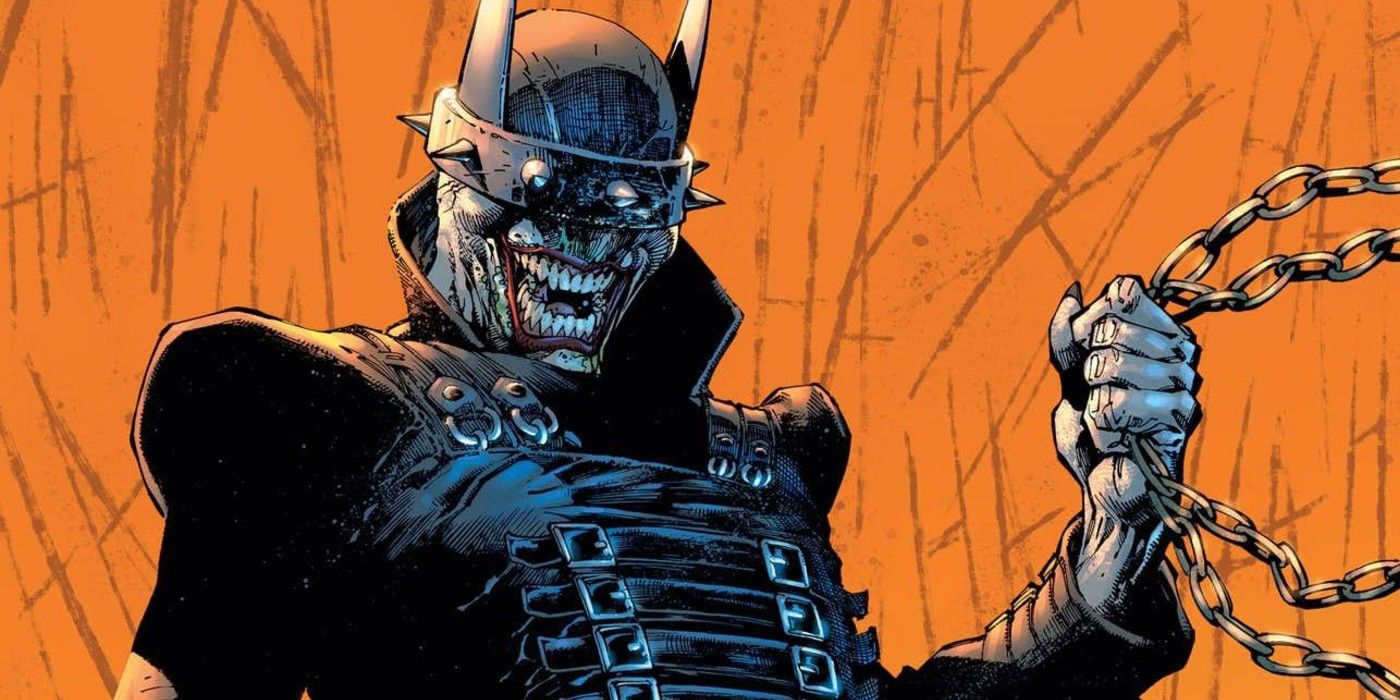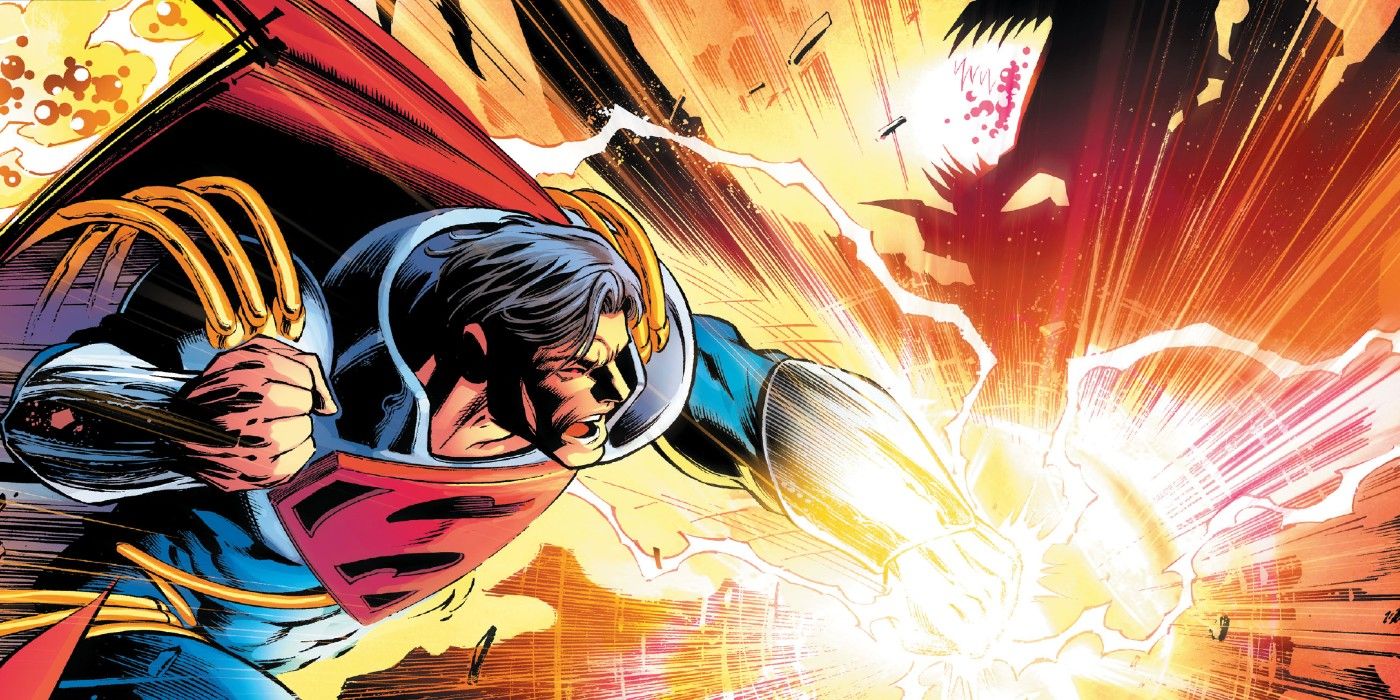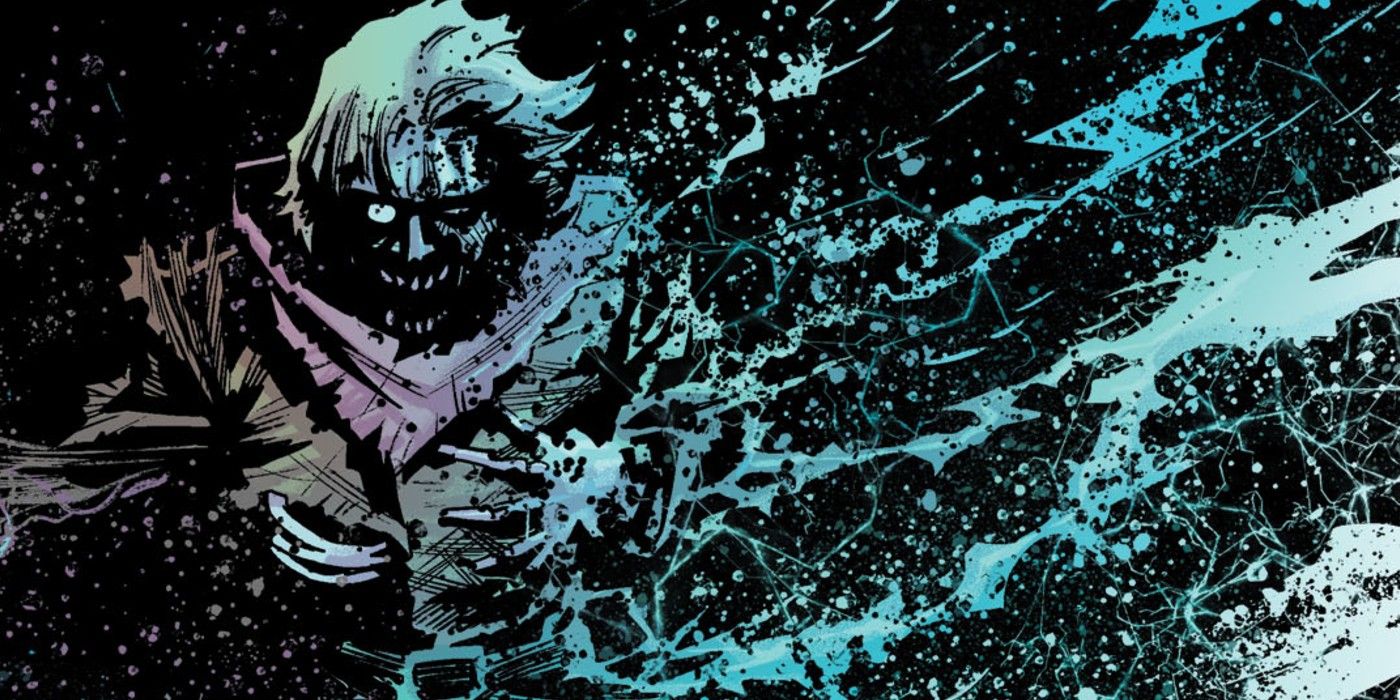Warning: contains spoilers for Dark Nights: Death Metal
For better or worse, big crossover events have become a staple of Marvel and DC comics. In 2020 alone, Marvel had two big events with King in Black and their space opera Empyre, while DC has had three between Joker War, Endless Winter, and Dark Nights: Death Metal. Though all of these events have had large effects on their respective universes, it's Death Metal that has the biggest goals. DC's punk-inspired event isn't just trying to tell a story, it's trying to set the stage for a new era of DC Comics and clarify decades of continuity. While the event has had a positive reception from fans, those larger goals should give readers pause. DC isn't just making a mistake with Dark Nights: Death Metal, they're making the same mistake they've made a dozen times before.
Ever since the runaway success of Crisis On Infinite Earths, DC has relied on big events to make major changes to its continuity and characters. Despite varying wildly in quality and tone, these universe-shattering events are incredibly consistent in one area, their themes. From Zero Hour all the way up to now with Death Metal, DC's biggest events have either been responses to or meta-commentaries on how dark the DC Universe and comic books, in general, have become.
It's telling that these events almost universally feature villains that are in some way responses to fan backlash. In Zero Hour, Hal Jordan's anger about his city's destruction reflects the anger many felt at seeing their Green Lantern turn evil. Superboy-Prime's similarly motivated change to villainy in Infinite Crisis reads like a parody of entitled comic fans. On the other end of the spectrum is the Batman Who Laughs, a character meant to be the physical embodiment of unnecessary darkness in comic books. It's no wonder that Superboy-Prime weakens the darkest Batman in Death Metal, as they represent two very different ideas for how the DC Universe should be.
Similar critiques of the DC Universe's trend towards darkness also pop-up in events such as Final Crisis, Flashpoint, Blackest Night, and Doomsday Clock. That last one is particularly notable as its main message seems to be that the DC Universe shouldn't be like Watchmen despite the event itself being a crossover with Watchmen. Each of these events in addition to the ones listed above have been followed by a period of DC attempting to bring a sense of hope and optimism back to their titles. Typically they do this either by bringing characters back from the dead or by rebooting their titles.
On paper all of this sounds fine. While darker stories have always had a place in comic books, many do feel the grim tone struck by many of DC's books has just become excessive. The problem though is evident in the number of times DC has tried going back to lighter stories. Rebirth is a perfect example. It was marketed as a return to form for DC. The classic post-crisis Superman was back, Wally West returned, characters started to remember their lives before the New 52. All of these changes were well received and led to a year of strong titles. But then the excitement for Rebirth dwindled and sales shrunk, so the darkness returned with Heroes in Crisis, a storyline where Wally West's PTSD leads him to accidentally kill a handful of heroes.
It wasn't just Heroes in Crisis either. Nightwing lost his memory, changed his name to Ric, and was brainwashed by the Joker. Damian Wayne and the Teen Titans illegally detained and tortured villains. Whatever goals the Rebirth era of DC comics started with, it clearly abandoned them. So, only four years later, DC is rebooting their reboot, which itself was already rebooting the New 52.
Another reason all of these self-critiques feel hollow is that the events themselves are incredibly dark. Death Metal is far from the worst offender, but still features plot points like Superman being tortured on Apokalips, Jonah Hex getting obliterated, and all of the new evil Batmen having incredibly tragic backstories. The evil Batmen alone represent another form of insincere self-critique.
Batman is DC's most popular character by a wide margin, but to say that Batman is overexposed at DC should not be a controversial statement. Of the 21 ongoing titles DC will publish in 2021, ten of them either prominently feature Batman as a main character or are Batman spinoffs. For reference, their second-biggest character, Superman, will only be featured in four ongoing titles in 2021. DC has also been criticized for making heroes like Green Arrow be more like Batman. Death Metal and its predecessor Dark Nights could be read as a critique of this as their main villains are alternate universe Batmen. Much like the aforementioned criticisms of dark storytelling though, Dark Nights and Death Metal are guilty of the same problem they're critiquing.
By creating all these evil Batmen, Batman's overexposure has only become worse. While most of DC's heroes have had moments to shine in both Dark Nights series, much of the marketing was heavily focussed on characters like the universe breaking Batman Who Laughs, putting the spotlight on Batman more than ever. With the introduction of these characters, Bruce Wayne is now, canonically, the most important person in the multiverse.
Giving credit where it's due, at least the original seven Dark Knights all do represent Batman's greatest fears. Unfortunately Death Metal features a whole slew of other characters combined with Batman who are just meaningless. There's a Bruce Wayne who is somehow a cross between Batman, Robin, and the Joker. There's a Batman who is also Lobo. There's even a Batman who is the Punisher.
None of this is to say that Death Metal is a bad story. Fan reception has been mostly positive and for good reason. There are a lot of fun moments and some of the new characters such as the greatest Robin, Jarro immediately stand out as great new additions to the DC Universe. The problem with Dark Nights: Death Metal isn't in the story or the art, it's with what it means for the DC Universe. DC's next big event Future State is, much like Rebirth, supposed to embrace the fun and optimism of superheroes. But if DC's past is anything to go by, fans will only have to wait a year before things get darker and DC starts working on another reboot.



